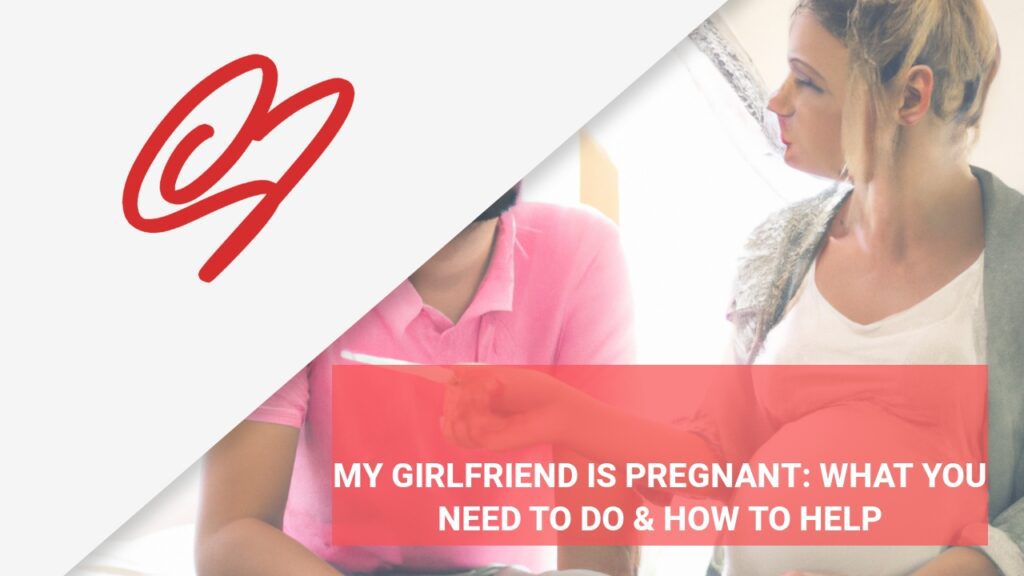
Hey Soul Bonding Love, So, here’s the deal. My girlfriend and I have been dating for close to two years now. It’s been mostly good times. Sure, we had our rough patches but nothing Earth shattering. Until last night. We had a fight. Ugh, it was one of those stupid ones, you know? The ones that start from absolutely nothing and then just blow up into something huge and ugly? Yeah, one of those. I came home late from work, exhausted outta my mind and she was already mad because I missed our date night; not the first time either according to her tally. I honestly forgot about it with all the chaos at work. Her anger was valid but what really threw me off was that in the heat of the moment she said “I hate you.” Those three words hit me like a wrecking ball man! And now I don’t know where we stand. Does she actually hate me or was it just something that slipped out in her anger? We haven’t talked since last night and my mind is racing with questions. What do you think man? Is this it for us or should I try and fix things? Any advice would be much appreciated right now. Thanks, Lost_and_Confused
The Raw And Honest Truth I Would Give To My Friends Or Family Member…
Here’s what I’ll say, Lost_and_Confused: Fights like these, though they seem insignificant, can really be about deeper issues in a relationship. It’s not necessarily about forgetting a date night; it’s more about feeling neglected or unimportant.The thing to point out here is that you’re working hard and are under stress too. It’s not all one-sided. But relationships require both parties to invest time and efforts. You’ve missed several date nights, and that means something. It’s a missed opportunity to connect and share quality time together.
In the heat of the moment, people often say things they don’t mean – your girlfriend may fall into this category with the ‘I hate you’ comment. However, it’s important to acknowledge the severity of those words. They’re hurtful and they’ve clearly left you shaken.
Here’s my advice: First, take some time to cool down. Then, approach her calmly and express how those words made you feel. Encourage her to share her feelings too. Communication is key. Even if it’s hard or uncomfortable, it’s essential to understand where each other are coming from. You’ll either find that your relationship is strong enough to get through this or you’ll realize that there are bigger issues at play.
Then, it’s decision time. If both of you are willing to work on these issues, fantastic! Go ahead, make amends, and maybe set up reminders for your date nights. But if the argument was just a symptom of deeper problems, then maybe it is better for both of you to take a step back and reassess the relationship.
Remember, buddy, love isn’t just about the good times. It’s about navigating the stormy seas together. Good luck.
But, that’s just my personal viewpoint. I’ve asked an expert relationship coach to break it down for what it is.
It might provide you with some more context.
“My Girlfriend Said I Hate You”: Advice From A Relationship Coach
Unlocking Emotional Expressions
Okay, so what this actually means is that your girlfriend is expressing a heightened emotional state. The phrase “I hate you” could very well be an expression of frustration, disappointment, or hurt rather than genuine hatred. It’s important to recognize that this might be her way of verbalizing intense emotions she doesn’t know how to manage or communicate effectively.
Root Causes: Digging Deeper Beyond Words
In any relationship squabble or deep-seated issue, it often isn’t just about what was said but more about what was felt and went unsaid. When your girlfriend says “I hate you,” it may translate to a variety of needs or sentiments such as feeling unvalued, misunderstood, or perhaps reaching a boiling point after recurring issues.
The Language of Conflict
Conflict in relationships can sometimes feel like navigating through a minefield blindfolded. What your partner is getting at during those moments isn’t always spelled out in their words. They might use accusatory language because they feel defensive or cornered. It becomes crucial then to look past the hurtful comment and try to understand the underlying message—what is she really trying to say? Is there an unmet need or unresolved issue that’s causing such a reaction?The Ripple Effect on Relationship Dynamics
Repercussions from statements like these are inevitable—trust might waver; intimacy could suffer; walls go up. The psychological impact can create distance if not addressed thoughtfully. Therefore it’s important for both parties involved to address these statements sincerely and openly before negative patterns become entrenched. Communication Is Key: Opening Dialogue AvenuesAfter acknowledging the weight of her words and understanding there is probably more beneath them—one should approach the situation with empathy and readiness for open dialogue. Ask gentle but probing questions like “Can you help me understand what’s really bothering you?” Offering a non-judgemental space for her to express herself might reveal key issues that are going unnoticed. Actionable Steps: Building Bridges Back To Harmony
Moving forward requires actionable steps by both individuals in the relationship—apologies if necessary; commitment to addressing concerns raised; patience with each other’s processes; maybe even seeking professional help together if patterns repeat themselves regularly. Remembering that love is dynamic—a constant ebb and flow influenced by how partners communicate their needs—is vital in navigating through rough patches like these with resilience. Overall, taking into consideration modern dating nuances where expressions may often be exaggerated due to societal influences or emotional impulsiveness can also play into understanding where your partner comes from when they utter heavy statements out of anger or frustration.
With Everything That’s Been Said & Done (Or Alluded To 😬), What’s Next?
Let’s Take a Breather
Time and space can work wonders, especially after a heated argument. Right now, emotions are raw and you both might say things you don’t mean if you try to hash it out immediately.Give it a day or two to cool off before attempting a conversation. It’s important not to rush into dialogue when wounds are fresh. Use this time for some serious self-reflection—ask yourself why you forgot the date night and consider your priorities. Was it really just the chaos at work? Often, underlying issues surface during fights about “nothing.” So take this moment to breathe and think deeply about what led up to this point.
Acknowledge Her Feelings
When it comes time to talk, start by acknowledging her feelings. She was looking forward to that date night and feels neglected. Those feelings are real, regardless of the reason behind the missed plans.By showing empathy towards her situation, you’re setting a foundation of respect and understanding for your conversation. Tell her that you realize how important these moments are to both of you and that missing them isn’t something she should have to get used to.
Address The Elephant In The Room
You’ve got three heavy words hanging between you – “I hate you.” This needs addressing but in a non-confrontational way.Ask her about it calmly; give her the chance to explain what she was feeling in that moment without dismissing her emotions as ‘just anger.’ This demonstrates your willingness to understand rather than defend or attack back—key in any healthy relationship.
Create an Action Plan Together
If both of you want this relationship to continue on stronger footing, it’s time for an action plan.Figure out practical steps together that will prevent future blow-ups over forgotten plans. Maybe setting reminders or planning dates well in advance could help? But beyond logistics, commit to deeper changes too—like improving communication around expectations and frustrations before they explode into arguments.
Show Consistent Effort
Earn back trust through consistent actions, not just apologies.Your partner needs reassurance that things will be different moving forward—that this isn’t just post-argument remorse speaking but genuine commitment from your side. Stick with your action plan diligently so she can see real change over time.
Dig Deeper Into Relationship Dynamics
This fight might be symptomatic of something larger at play within your relationship dynamic.Analyze whether such incidents have become more frequent or if there’s some recurring theme behind these clashes. Perhaps consult with someone who specializes in relationships—sometimes an outside perspective sheds light on blind spots we can’t see ourselves.
Celebrate Small Victories Together
Last but not least, don’t forget the power of celebrating small wins together in rebuilding after an argument.Bonding over little achievements related to fixing issues can greatly reinforce positive behavior patterns—it also helps inject some much-needed light-heartedness after serious patch-ups. And remember: Love is as much about resilience as it is about romance!
Need Some Relationship Thoughts? Write To Us!
Is your romantic life in a bit of a maze and you’re finding it hard to navigate your way? Maybe you’ve got a situation you’ve been pondering for ages, unsure of what to make of it. If you find yourself up at night, wrestling with a relationship query that has you stumped, we’re here to offer our loving but honest personal thoughts on your predicament.
We understand that sometimes you’re not looking for professional advice, but rather an empathetic ear and some thoughtful insights that can help you see your situation from a new angle. That’s exactly what we aim to provide—a fresh perspective to help you reflect on what you’re experiencing.
Just write in with your query, and we’ll share our individual viewpoints that are rooted in empathy, understanding, and genuine human experience. We don’t claim to have all the answers, nor do we pretend to be experts. We’re just here to offer our thoughts, one heart to another.
Whether it’s a first date dilemma, a ‘situationship‘ that you’re not sure how to navigate, or a long-term relationship hurdle, we’d love to offer our personal reflections.
If you’re grappling with insecurities and questioning your relationship, it’s not uncommon to wonder, “why do I question if my boyfriend loves me?” This could stem from various factors, including communication gaps or previous emotional wounds. Exploring these feelings is essential for personal growth and relationship health.
In some cases, a partner might express doubts about the relationship’s future, saying something like “my boyfriend said he is not ready for marriage.” This can be disheartening to hear, especially if you have different expectations or timelines for commitment. It’s important to have an open dialogue about each other’s perspectives and desires for the future.
Accusations of infidelity can severely damage trust in a relationship, especially if they’re unfounded. Being accused by your partner can feel isolating, as expressed in scenarios where “my boyfriend thinks I’ve cheated but I haven’t.” Trust is a foundational element of any partnership and requires effort from both individuals to rebuild.
Lastly, one might experience the painful suspicion that their partner’s feelings have changed over time. Concerns like “does my boyfriend not love me anymore” point to deeper issues that may need addressing within the relationship through honest communication and possibly seeking professional guidance to navigate these challenges together.
Understanding these complex emotions and situations can be overwhelming. In times of confusion or heartache within your romantic life, it helps to seek out resources that resonate with what you’re going through for support and advice on how to progress forward with empathy and clarity.

